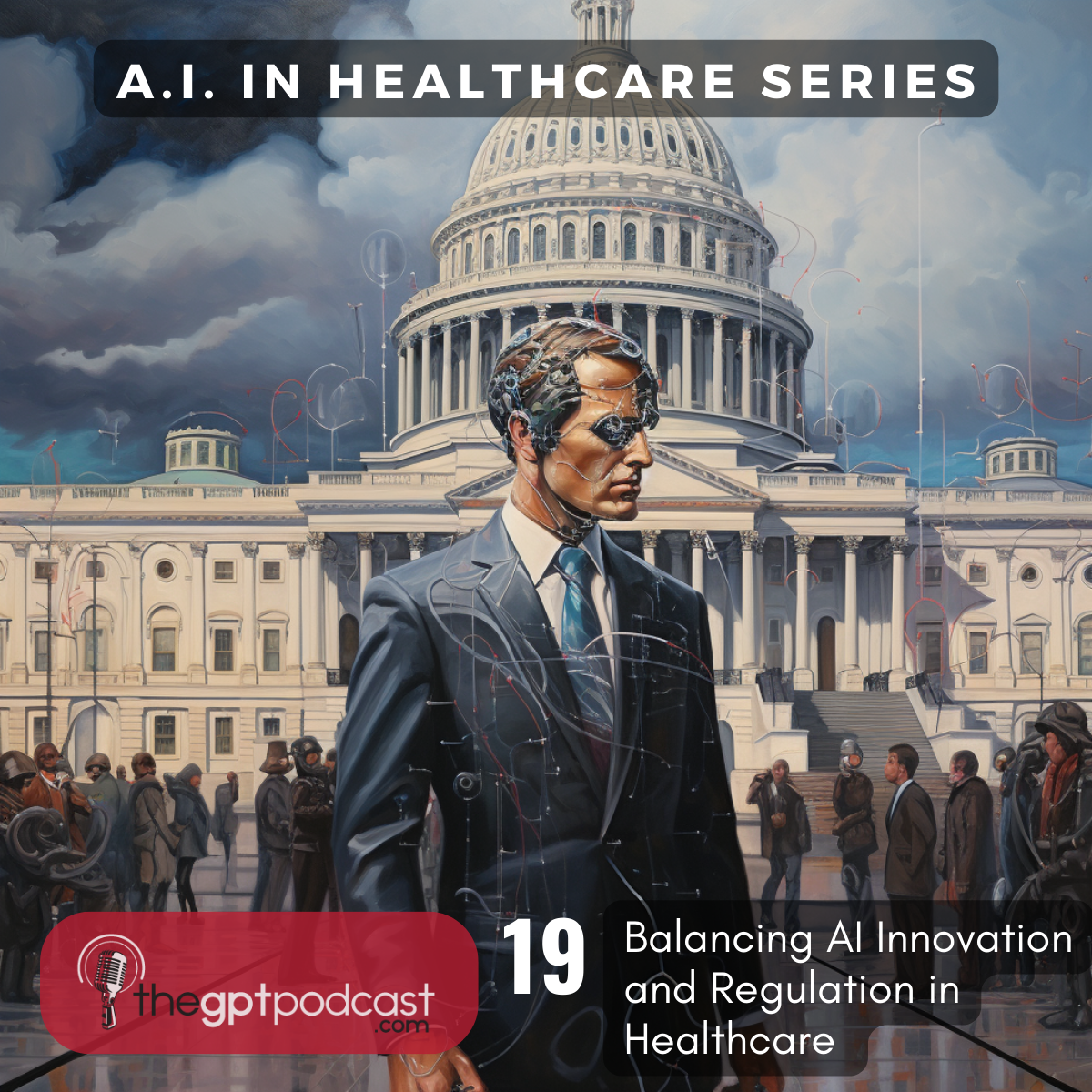Balancing AI Innovation and Regulation in Healthcare
In the GPT Podcast, Dr. Castro & Brooks discuss AI's role in healthcare🩺📊. They highlight AI's potential, like speeding up drug discovery💊⏱️ and reducing healthcare costs💰.

As AI continues to evolve and integrate across various sectors, the healthcare industry finds itself amidst a significant shift in technology dynamics. In a recent episode of the GPT Podcast, Dr. Harvey Castro and co-host Brooks delved into the intricacies of AI's impact on healthcare and its associated regulatory and ethical concerns.
According to Dr. Castro, AI's potential in revolutionizing fields from healthcare to education and the labor market is impressive. Specific feats such as speeding up drug discovery and enhancing personalized learning are some of the benefits that AI brings to the table. However, such advancements come simultaneously with challenges, leading to an urgent need for a cogent regulatory environment.
In terms of regulation, it is important to establish that the FDA's role is pivotal but not unilateral. Dr. Castro referred to a recent FDA discussion paper outlining AI's role in drug development, advocating for aspects such as data quality, human-led governance, and model development standards. Concurrently, Congress was also highlighted as a critical player, spearheading efforts to establish a regulatory framework for AI in healthcare.
One of the primary challenges in drafting regulations for AI is defining AI itself clearly, given its ever-evolving nature. As noted by Dr. Castro, "AI is not a one-size-fits-all type of technology." Accordingly, regulations must be specifically tailored to each unique application, similar to how the software in airplanes, power plants, or medical devices is regulated.
A promising application of AI is in the domain of drug discovery. Dr. Castro mentioned that AI could drastically cut down the time taken for new drugs to reach clinical trials, previously up to 26 months, by predicting the best candidates and designing medicines specific to targets. Furthermore, the streamlining of administrative tasks via AI in healthcare administration could potentially save billions of dollars in healthcare spending.
While discussing these advancements, the conversation also pointed out the challenges, particularly privacy concerns. With AI heavily reliant on datasets often involving sensitive health information, accurately striking a balance between advancing healthcare through AI and protecting patient privacy is pivotal.
Given the vast implications, Congress's role in shaping the regulatory landscape for AI in healthcare remains critical. The pursuit of balance between fostering innovation and safeguarding against risks is paramount. Dr. Castro emphasized that with context-specific regulations and expert-led collaborations, we can accomplish the joint goal of capitalizing on AI's transformative power while ensuring the collective good.
This enlightening podcast discussion underlines the complexities, potential, and pitfalls of integrating AI into healthcare. It’s clear that we've only begun to scratch the surface of this dynamic technology's multifaceted role and impact within the healthcare sector. As the journey into uncharted territories of AI continues, rigorous discourse and informed decision-making will steer the way forward.

